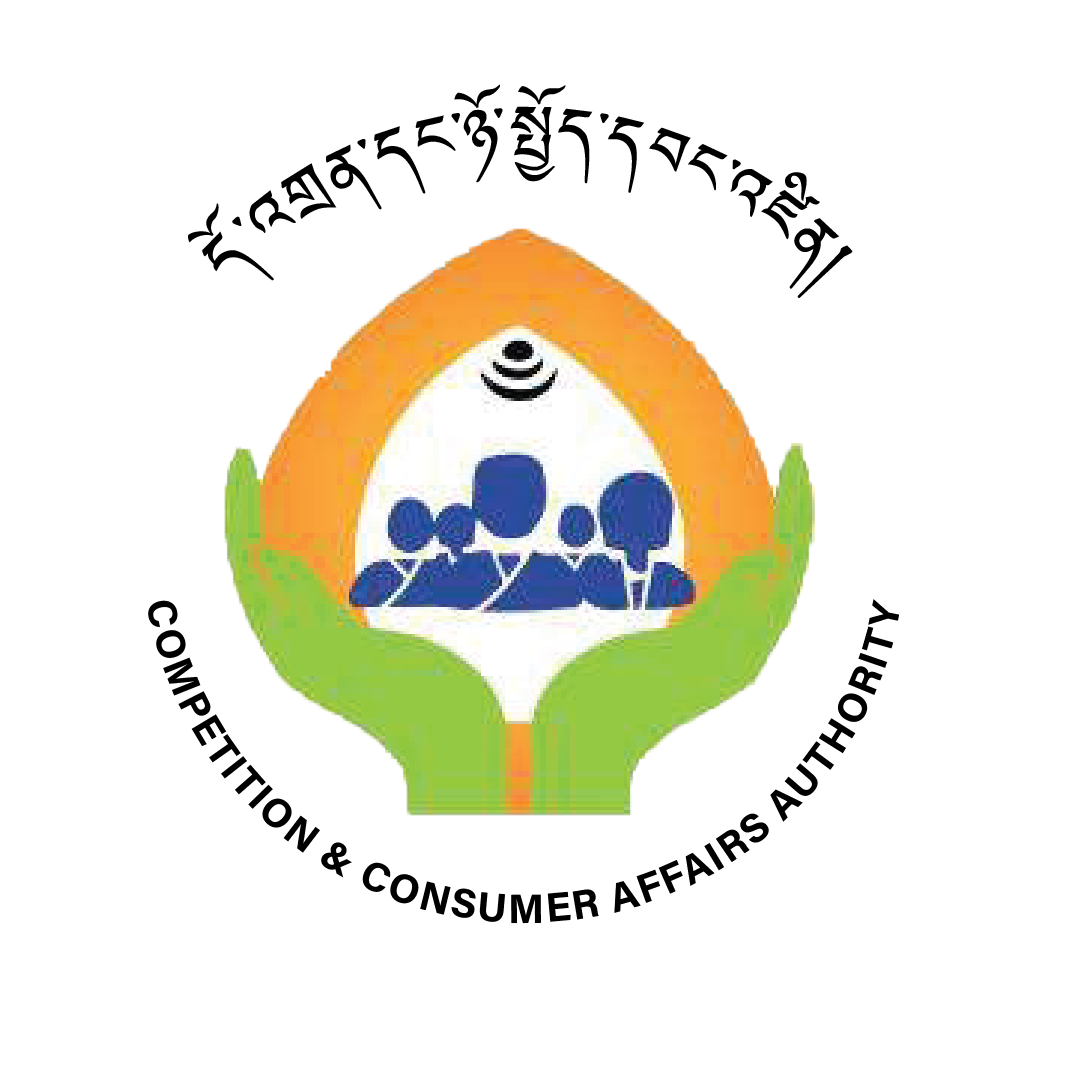FAQs
- Home
- FAQs
The CCAA is a government agency that (i) protects consumers rights against unethical businesses and (ii) ensures businesses compete fairly and transparently in the market.
You have the right:
- for access to healthy and safe goods and services,
- to accurate and truthful information about goods and services,
- to fair and equitable treatment by businesses,
- to choose products and services at competitive prices, and
- to get redressal against unfair business practices.
You can
- call us on our toll-free number [1214],
- email us at consumerservice@moice.gov.bt,
- submit your complaints on the Complaint Management System (CMS) available on our website ccaa.gov.bt, or
- visit us during office hours.
We will find out the facts and based on evidence, we may ask the firm to repair, replace or refund or fulfill other remedial measures. If that fails, we will facilitate a mediation between you and the business firm. If mediation fails, we will call upon our Dispute Settlement Committee (DSC) who will then pass a judgment. If either of the parties are dissatisfied with the ruling of the DSC, he/she/they can then pursue it in the court of law.
You can complain either to the Gup of your Gewog or the Regional Office of Industry, Commerce and Employment (ROICE). ROICE are located in Monggar, Samdrup Jongkhar, Trongsa, Gelephu, Phuentsholing and Thimphu.
No, CCAA’s mandate is only to resolve disputes between an individual and a registered or licensed business.
CCAA’s jurisdiction is only within the country. Nonetheless, we could try and facilitate redressal through our Ministry of Foreign Affairs & External Trade (MFAET), though we cannot assure that redressal will be successful. Extreme precaution needs to be taken before getting into business deals with firms outside Bhutan.
Yes, if the e-commerce is registered locally. There are many that operate online without registration and contacting and locating them for grievance redressal is a challenge. That is why you should deal only with registered or reputed e-commerce firms.
Yes, as a responsible citizen you should report any unethical business practices. We will investigate and act as per evidence against the business. You do not have to reveal your identity and even if you do, your identity will be protected. Depending on the type and the gravity of violation, we may caution them, take administrative action or litigate in the court of law.
It does help if you have documentary evidence. Depending on the nature of the case, it can be just a cash memo, screenshot of online payment, copies or screenshots of e-mail or sms exchanges or in other cases, documents such as warranty papers and sales terms and conditions.
Yes, for all purchases above Nu. 100, they have to issue a cash memo.
No, MRP on imported products is not applicable in Bhutan. Apart from products such as medicine, petrol, diesel, LPG, sand, timber, cement and other domestically produced consumer goods (wherein the manufacturer has set the MRP); prices are not fixed and are determined by the forces of supply and demand, i.e. market competition.
Yes, all businesses are required to put visible and easily legible prices on the product or attach price tags on the goods.
No, businesses are not permitted to erase or tamper pre-printed prices, since they can be used by consumers as a reference.
Yes, all businesses are expected to have a calibrated weighing or measuring scale at their store. If you want, you have the right to ask them to weigh it.
Businesses must not sell expired, spoilt or damaged products. You have the full right to ask for a refund or replacement.
Yes, you do. It helps if you have mutually agreed contracts or invoice wherein delivery date is specified. If the delivery date was verbal agreement, it is difficult to prove.
Pyramid scheme is a money-making scheme, wherein, the company’s real business is to recruit people to sell a normally sketchy, price-inflated product(s). The recruits who are attracted by the promise of earning easy money will only make money if they can gather a lot of ‘downline’ members. To maintain their standing in the company, they have to keep on buying the product(s). The sale of these products and the registration fee that new members have to pay keeps cash flowing towards the top of the pyramid, i.e. the upline members and the proponents at the very top.
No, all pyramid schemes are illegal. If you suspect any pyramid schemes are being operated, report to the CCAA at once.
No, we frequently carry out market monitoring and market research. If we find unethical business practices, we either ask them to rectify or penalize them, depending on the nature and gravity of offense.
Yes, these benefits are meant for final consumers. In case you come across businesses that do not pass on the benefits to you OR if you find them selling these products separately, you should complain to the CCAA









